15 Black History Month Movies You May Have Missed—Featuring Sidney Poitier, Denzel & More

Every February, the internet is flooded with lists meant to highlight achievements in Black cinema. But oftentimes, we see the same Black History Month movie suggestions over and over again—from mainstream entries to the predictable critics’ pick from last year’s award season.
This Black History Month movie list is doing things a little differently. We’re introducing readers to titles that are less circulated, including deep cuts from the careers of iconic actors and directors today. From harrowing documentaries and sultry mysteries to bombastic action adventures and afro-futurist classics, these suggestions are an amazing place to start if you’re looking to broaden your horizons this Black History Month.
More from StyleCaster
Here's How to Watch 'Black Panther: Wakanda Forever' For Free Now That It's Officially Streaming
Black History Month Documentaries to Share, Learn & Grow From
Summer of Soul (2021, dir. Ahmir Thompson)

Click here to read the full article.
Imagine you had the opportunity to attend a music festival with performances from the likes of Stevie Wonder, Nina Simone and Mahalia Jackson. Now imagine never seeing any evidence of said festival for decades afterward. You might start to believe that it had all been a dream, but Ahmir “Questlove” Thompson’s directorial debut shows that not everything fantastical has to be fictional. Summer of Soul chronicles the Harlem Cultural Festival, held across six weeks in 1969—the same year that Woodstock took the news circuit by storm—in what is now known as Marcus Garvey Park. Organizer Tony Lawrence made sure that every day of the festival was filmed, but the bulk of the footage remained locked away for 50 years until Questlove decided to unearth it. Stitching together attendee and performer testimonials with news accounts of the times, and cherry-topping it all with actual concert footage, Summer of Soul captures a completely transcendent moment in Black history and is requisite viewing, especially for this momentous month.
Watch ‘Summer of Soul’ on Hulu $7.99+
The Last Black Man in San Francisco (2017, dir. Joe Talbot)

The Last Black Man in San Francisco tells the story of a young man (actor Jimmie Fails as a version of himself) on a mission to reclaim his former family home. The home, now tens of times more expensive than it was when he lived there, stands in line with a series of other gentrified houses in the Bay Area. Fails has known the film’s director, Joe Talbot, since childhood, and both wanted to tell this story for almost as long. The production was saddled with all the typical troubles that might befall an independent film stalled by budgetary restrictions, such as geographical issues brought on by the consistent demolition of the desired shooting areas. In a way, this demolition speaks to the theme of displacement that cuts so crucially through the narrative.
The film is also noteworthy for being the breakout performance of Jonathan Majors, who went on to achieve more widespread acclaim in the HBO fantasy series Lovecraft Country. Part memoir, part thesis and all love letter to the city in which it is set, Last Black Man remains an extremely sincere film that deserves to be seen.
Watch ‘Last Black Man in San Francisco’… $7.99+
Urban Rashomon (2013, dir. Khalik Allah)
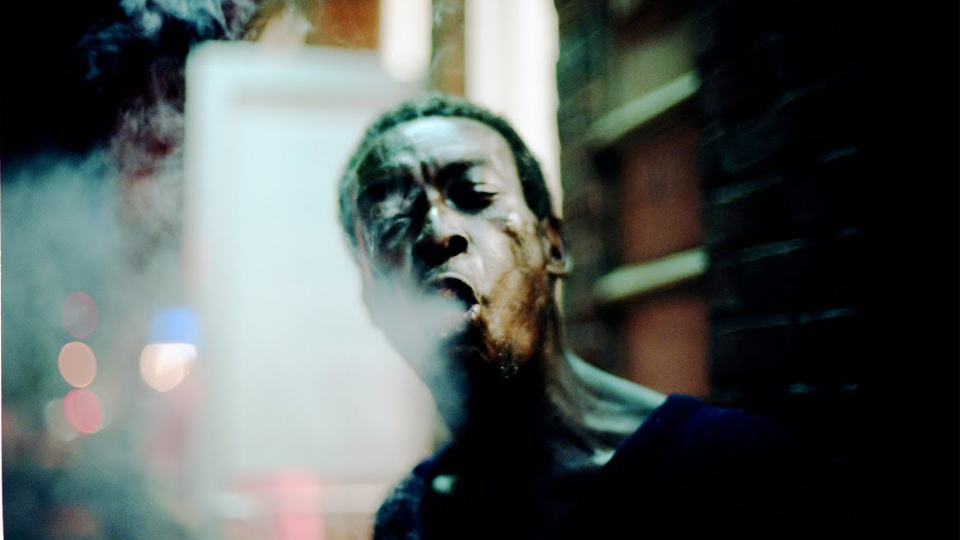
Shot on and around the corner of 125th and Lexington in New York City, Urban Rashomon is almost more of a journal entry than a film. In a voiceover, photographer Khalik Allah tells us the story of his brief relationship with “Frenchie”: a nomadic native of East Harlem with a crippling addiction to synthetic weed. Allah’s narration plays over intercut photos and footage of Frenchie, sharing testimonials from his personal experience and other locals who know Frenchie well. Perhaps the most uncomfortable watch on this list, Urban Rashomon is a provocative meditation that ultimately leads the audience to question when, or whether, it is necessary to document such stories.
Watch ‘Urban Rashomon’ on Criterion… $10.99+
Devil in a Blue Dress (1995, dir. Carl Franklin)

Denzel Washington in a 1940s Los Angeles-set neo-noir. Anyone would be hard-pressed to come up with a more captivating elevator pitch than that, especially during the 90s when Denzel was turning out one stellar performance after another. With the plate still cooling from his turn as Malcolm X in 1992 and Philadelphia the year after that, Devil in a Blue Dress was one of three films to release in 1995 with the now-iconic actor at the helm. In it, Denzel plays Ezekiel “Easy” Rawlins, an out-of-work vet who is lured, by necessity and eventual obsession, into the search for a missing white woman. Don Cheadle also lends his talents in a supporting role that garnered him immediate acclaim. Most notably, the film is based on a novel of the same name; and its author, Walter Mosely, became the first Black man to win the National Book Foundation Medal for Distinguished Contribution to American Letters in 2020.
Watch ‘Devil in a Blue Dress’ on Prime… $8.99
The Brother from Another Planet (1984, dir. John Sayles)
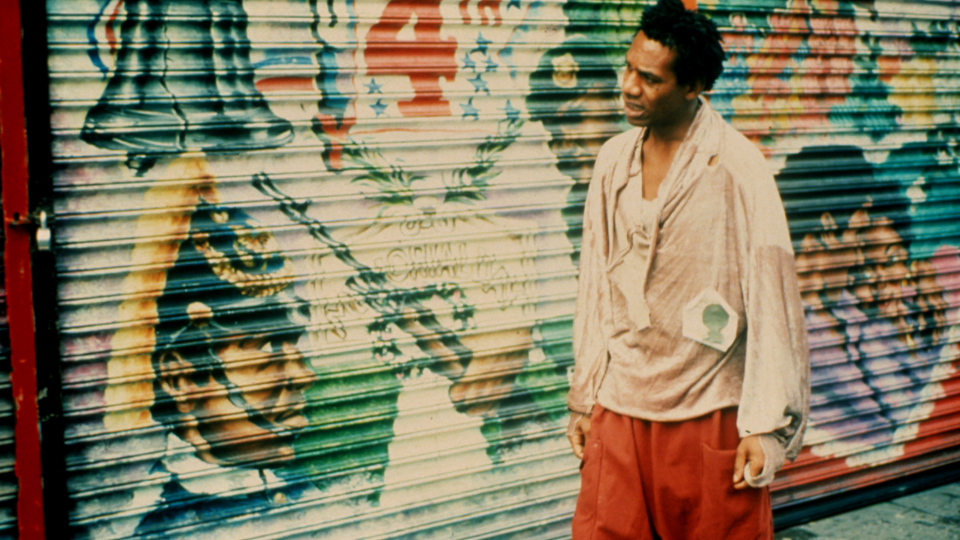
A UFO crash lands on Ellis Island, and out of it springs no octopedal martian or titanic war machine, but a man. A Black man, as ordinary-looking as any you might see on the street, apart from his three-toed feet which he keeps covered with shoes. This is the premise of The Brother from Another Planet, a low-budget indie film starring a young Joe Morton as the titular “Brother,” who spends the majority of the film seeking refuge in New York and evading capture by two mysterious men in black. As the Brother moves throughout New York and interacts with different types of people in the city, director John Sayles infuses his commentary about immigration and refugee crises to deliver a crucial message about what it means to belong.
Watch ‘The Brother From Another Planet’… $8.99
Illusions (1982, dir. Julie Dash)
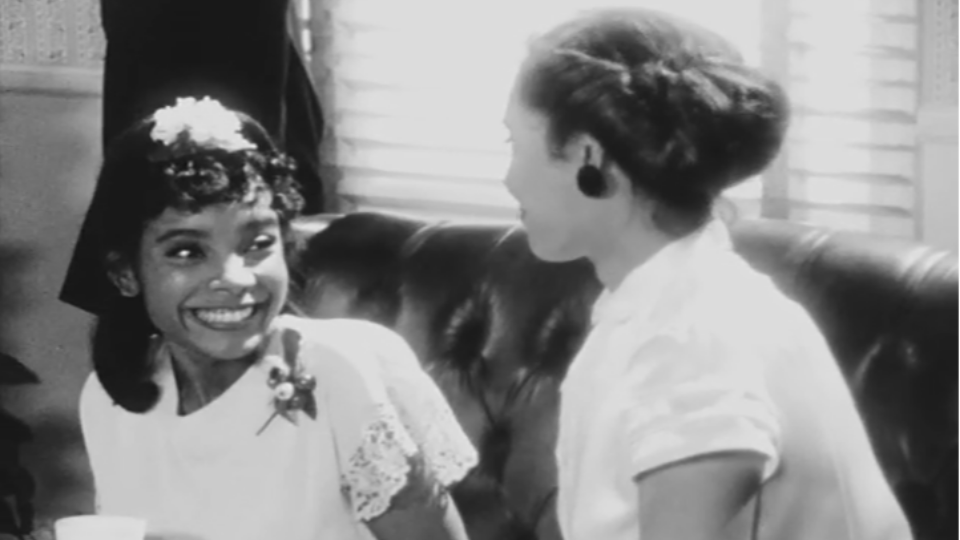
Before she directed her seminal feature Daughters of the Dust, Julie Dash composed a shorter film during the pursuit of her master’s degree at UCLA. It was called Illusions; another postwar period piece set in Hollywood wherein a firebrand executive assistant named Mignon (Lonette McKee), is given the task of finalizing a musical film on her own. In typical old Hollywood fashion, the main actress has the look the producers want but not the singing voice. For that they must turn to a Black woman, an ingenue named Esther (Rosanne Katon, her own singing voice swapped for Ella Fitzgerald), who subsequently forms a brief bond with Mignonne over the irony of their circumstances.
Thematically and stylistically it is something of a predecessor to Rebecca Hall’s Passing, which debuted on Netflix in late 2021. Like that film, Illusions explores the lifestyle of a white-passing Black woman living and working in a space that can’t see her for who she is and the constant danger and dehumanization this causes. It also serves as a critique of the lack of available visible work for Black women and the way the entertainment industry seeks to separate them from their talent, making them disposable. Like a few more entries here, Illusions was born out of a movement of Black filmmakers that historians would later dub “the L.A. Rebellion.”
Watch ‘Illusions’ on Kanopy $0.00+
Killer of Sheep (1978, dir. Charles Burnett)
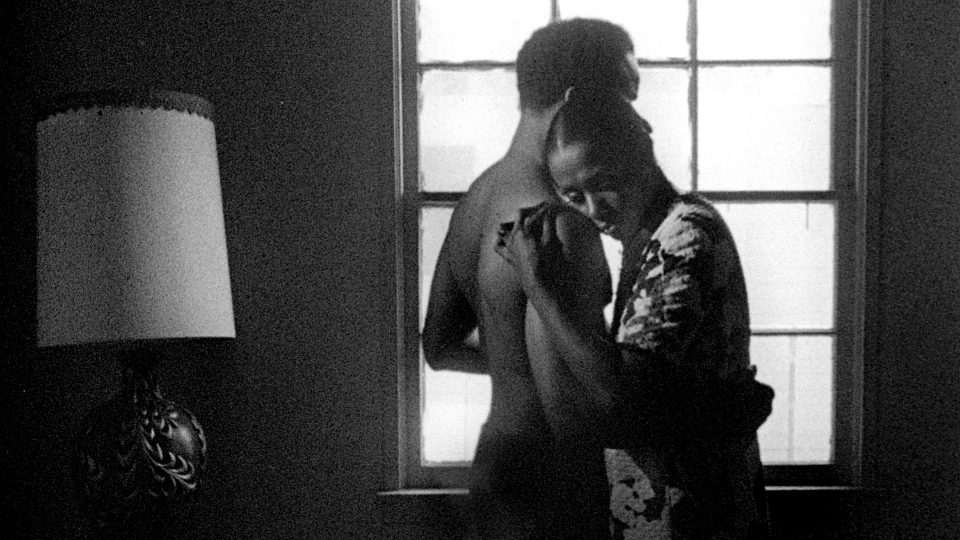
Coming right up next is one of Dash’s fellow “Insurgents,” Charles Burnett. Killer of Sheep was the culmination of Burnett’s graduate study at UCLA, and tells a loosely narrative story about a slaughterhouse worker caught between the depravity of his employment and the tenderness he seeks to exhibit as father and provider to his family. A heartachingly realistic film, it gained Burnett immediate attention when it premiered at the Whitney Museum in 1978. Unfortunately, since Burnett hadn’t received any licenses for the music he used, the film was locked in arbitration for 30 years. But the few students and curious Whitney attendees who saw Killer at its premiere in ’78 bolstered its reputation enough to see it added to the National Film Registry in 1990 even while it was still in release limbo. Decades later, Burnett’s opus finally saw a limited release in 2008, restored from 16mm to spectacular 35mm.
Watch ‘Killer of Sheep’ on Kanopy $0.00+
Cooley High (1975, dir. Michael Schultz)

Before John Singleton and Spike Lee, there was Michael Schultz, whose junior feature Cooley High has been hailed as a landmark. Set near the Cabrini-Green projects of Chicago in the 1960s, the main characters are high school seniors Preach and Cochise. The two are on different career paths—Preach pursuing playwriting and Cochise courting a college scholarship for basketball. This story tracks the development of their friendship, with emotional highs and lows that work in tandem to depict the ubiquitous trials of young Black American men.
Watch ‘Cooley High’ on Prime Video $3.99+
Black Mama White Mama (1973, dir. Eddie Romero)

A quintessential blaxploitation film inspired by The Defiant Ones, Black Mama White Mama stars Pam Grier and Margaret Markov as Lee Daniels and Karen Brent, two women shackled together during transfer to a maximum-security prison. Daniels plays a prostitute seeking to recover the cash she ripped off her former pimp, while Brent is a freedom fighter on a mission to arm her fellow rebels. Pursued across a jungle terrain by crooked police, bounty hunters and guerilla military forces, the two women must overcome their significant differences before they can overcome the odds.
Buy: Watch ‘Black Mama White Mama’ on Prime Video $0+
Ganja & Hess (1973, dir. Bill Gunn)

In a storied legacy of scary cinema from Black filmmakers, Ganja & Hess is one of the all-time titles. In it, an anthropologist named Hess Green (Duane Jones, the icon from Night of the Living Dead) is accidentally stabbed by an African dagger and undergoes a mutation; he achieves immortality at the price of subsisting on fresh blood. Soon after making this discovery, he forms a romance with his former assistant’s wife, Ganja (Marlene Clark), who he transforms into his own bloody bride. Of course, there are a few hiccups in what would be their happily ever after. Seductive, gothic, campy at times, Ganja & Hess manages to be thrilling even in its zany moments and is quality midnight viewing any time of the year, but especially this month.
Buy: Watch ‘Ganja & Hess’ on Show via Prime Video $0+
Watermelon Man (1970, dir. Melvin Van Peebles)
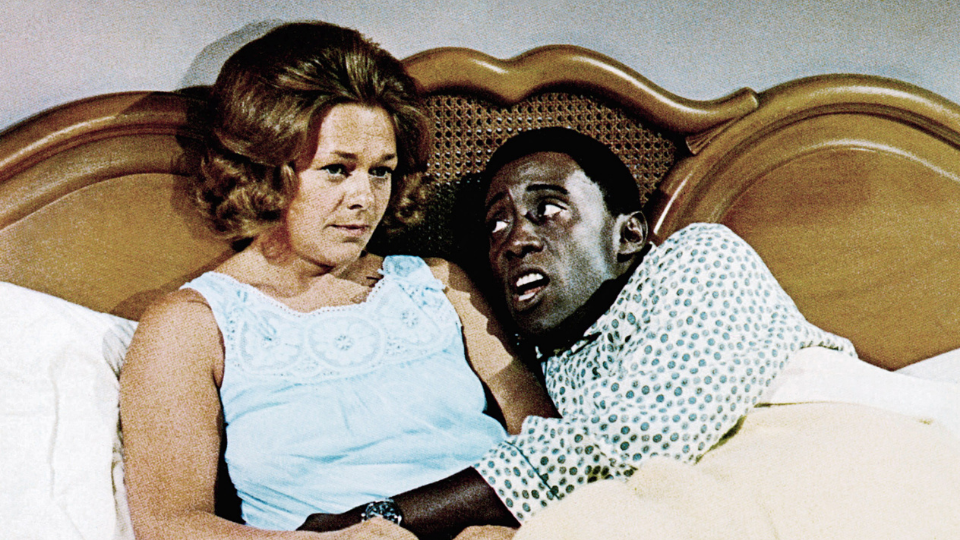
In this satirical comedy from the late Melvin Van Peebles, insurance salesman and incurable bigot Jeff Gerber lives a typical 60s suburban life and is gleefully racist toward Black Americans. But one morning he stumbles into the bathroom and realizes, in complete terror, that he himself has been turned into a “negro.” The story takes cues from Franz Kafka’s The Metamorphosis and more realistically from a nonfiction account published by one John Griffin called Black Like Me, which details the author’s time spent posing as a Black man in the segregated South in hopes of understanding life on the other side of the color barrier. This may not be Van Peebles’ most known work, but it is the film that got his contract offer from Columbia Pictures rescinded and effectively blacklisted him from the industry—which honestly sounds like even more reason to watch it.
Buy: Watch ‘Watermelon Man’ on Prime Video $3.99+
Black Panthers (1968, dir. Agnès Varda)

Probably the most truly historical suggestion on this list, Black Panthers is a short documentary film shot by French New Wave legend Agnès Varda during the summer of 1968, when the titular civil rights organization was protesting the arrest of their co-founder Huey P. Newton. More than an exploitative piece of documentation banking on the outrage of its subjects, Varda’s camera seeks out key players in the protests as well as ordinary Black citizens, attempting to identify the genesis of their outrage and the purpose it serves.
Watch ‘Black Panthers’ on HBO Max $9.99+
Black Girl (1966, dir. Ousmane Sembène)
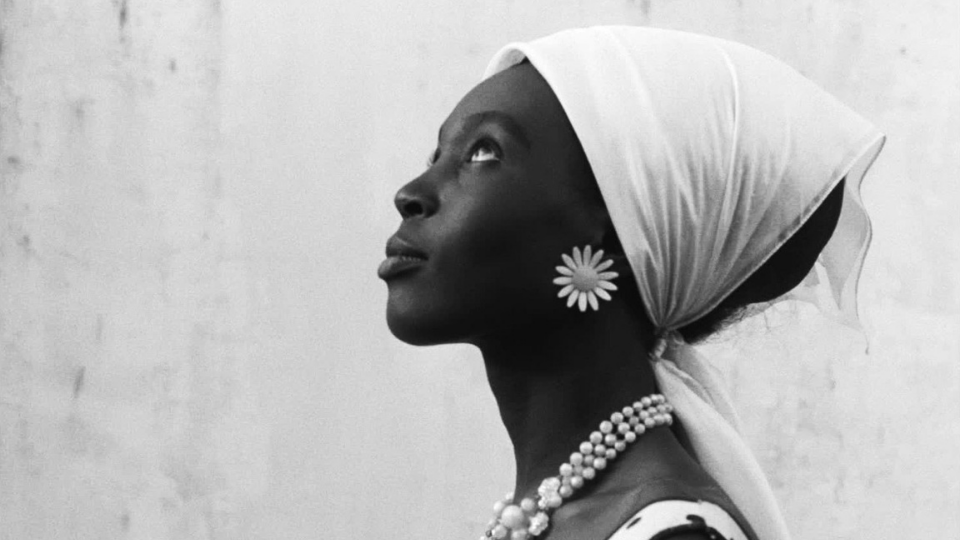
For an international perspective, some cinephiles may want to explore the work of Senegalese director Ousmane Sembène. Often dubbed the “father” of African cinema, Sembène’s work is often centered on the strength of African women; he made his scorching debut in 1966 with La Noire de…, marketed overseas as Black Girl. Based on a true story, it follows young Diouana leaving her home in Senegal to work as a domestic servant to a wealthy French couple. The story is told in flashbacks between her current employment and her old life and incites heavy emotion as Diouana’s experience becomes less and less ideal. Fans of what Alfonso Cuáron did with Roma should find themselves deeply moved by this film.
Buy: Watch ‘Black Girl’ on Prime Video $3.99+
Edge of the City (1957, dir. Martin Ritt)
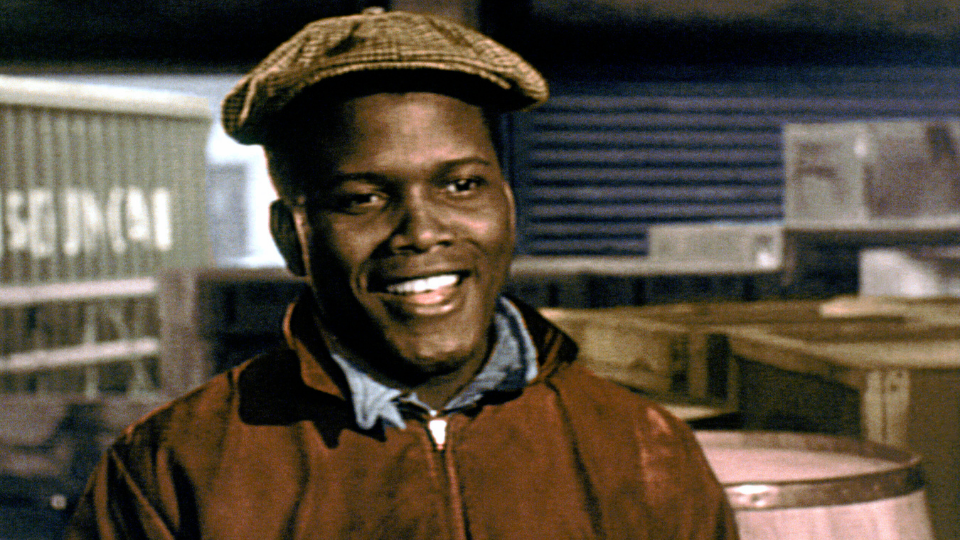
The late great Sidney Poitier had a prolific career, and one of his earliest appearances was in Edge of the City. In it, he plays Tommy Tyler, a longshore supervisor who takes protagonist Axel (John Cassavetes) under his wing. But their friendship is threatened by Malick, a fellow dockworker who despises the idea of having a Black man as his boss. Needless to say, things build to a breaking point.
Buy: Watch ‘Edge Of The City’ on Prime Video $2.99+
Within Our Gates (1920, dir. Oscar Micheaux)
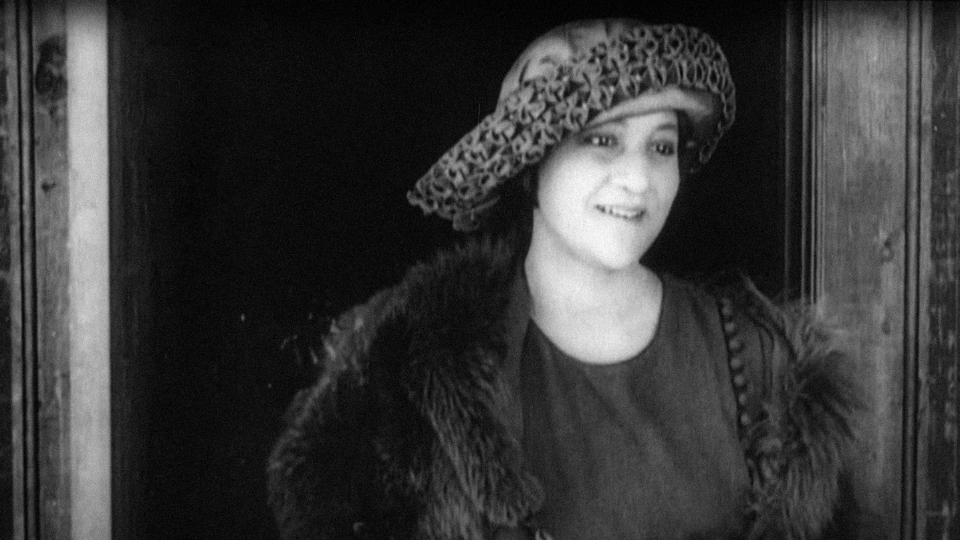
Oscar Micheaux is the pioneering Black filmmaker, full stop. During his heyday, he produced upwards of 40 films, some of which have been lost. But Within Our Gates has been preserved, and for good reason, since it is the oldest known surviving film by a Black director. It follows Sylvia Landry (Evelyn Preer), who travels North to raise funds for underfunded Black schools in her hometown and is swept up into a spiral of crime, passion and blackmail. The film made waves at the time of its release for its boldfaced depiction of race relations and even dramatized lynchings, but Micheaux never shied away from that kind of reaction. In fact, he spent the rest of his career chasing it, believing it was “only by presenting those portions of the race portrayed in my pictures, in the light and background of their true state, that we can raise our people to greater heights.”
Buy: Watch ‘Within Our Gates’ on Prime Video $3.99+
Our mission at STYLECASTER is to bring style to the people, and we only feature products we think you’ll love as much as we do. Please note that if you purchase something by clicking on a link within this story, we may receive a small commission of the sale.
Best of StyleCaster


